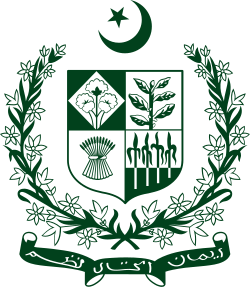Indian passport holders
Applications from Indian passport holders must be cleared directly from the Ministry of Interior, [13] though they are not barred from visiting Pakistan despite being subject to additional regulations, including mandatory police registration, [13] regardless of visa type. [13]
Foreigners of Indian origin were subject to this regulation as well. On 25 January 2019, the policy was revised for Indian Origin United Kingdom and United States Nationals. [13]
Indian nationals are also restricted in the availability of ports of entry to Pakistan, and instead must enter and leave the country via designated points, including the Wagah border, as well as through airports in Islamabad, Lahore, and Karachi. [13]
Indian nationals are typically required to enter and exit Pakistan through the same post, unless permission is sought in advance. [13]
Indian passport holders are not granted tourist visas, and are only permitted to apply for visas to visit family and friends, business visas, transit visas, and visas for religious pilgrimage. [13]
6 month business visas are granted to Indian passport holders, with multiple entries permitted. [13]
Indian passport holders are also ineligible for any visa extensions, [13] though passport holders who stay longer than the time permitted by the visa are subject to a fee of 40 Rupees per day of overstay.
Indian residents applying for a tourism, visit or student Pakistani visa may especially face issues pertaining to their religious backgrounds. Many visa applicants have also expressed concerns for the extended process that allegedly takes almost twice as much time as other such visas as well as the on and off government imposed bans upon inter-country travels between India and Pakistan. [15]
Indian nationals holding American, British, or Canadian passports are eligible to travel to Pakistan by obtaining an e-visa. The application process is streamlined through Pakistan's official e-visa portal, allowing for a convenient and efficient approval system. [16]






